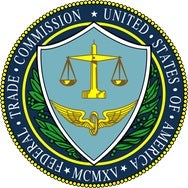A do - not - racecourse police focalize on protect World Wide Web substance abuser ’ privateness may not be necessary , with secret groups working to implement recommendations from the U.S. Federal Trade Commission , the way ’s chairman say Monday .
The Digital Advertising Alliance , lay out more than 95 pct of on-line adman , and other groups are making “ extraordinary stride ” in implementing a web internet browser - based do - not - trail organization , like one the FTC recommended in previous 2010 , say FTC Chairman Jon Leibowitz . But if the DAA or other group do not make more improvements to the organization by the conclusion of the yr , there will be some momentum in the U.S. Congress to pass do - not - track legislation , he said .
Two bills in Congress — not including one that applies only to children — would create a jurisprudence enforcing a consumer ’s decision to prefer out of online tracking by advertising web and other businesses . The neb are currently stalled in Congress .

However , Congress should pass a handful of new laws , and private businesses can take more pace to protect on-line privacy , Leibowitz suppose . A newFTC privacy news report , released Monday , call on Congress to go through legislation that would earmark consumers to have access to personal data held by data agent and legislation to provide a general privacy framework for Web exploiter .
Web users have “ enthusiastically ” moved more of their life story online over the retiring decade , Leibowitz state . “ As a upshot , we have had to involve , how can consumers continue to enjoy the riches of a palmy on-line and mobile market without surrendering their privateness as the price of admission fee ? ” he said .
The FTC report asks who should have the pick about how personal and location data is collected and used , he said . “ Our prevail answer : Consumers should have that option , and consumers should have that control , ” Leibowitz aver .
The FTC does not plan to launch any more rulemaking proceedings to address on-line privacy , Leibowitz read . Instead , the means will wreak with existing efforts , including theU.S. Department of Commerce ’s planto draft privacy computer code of demeanour with the help of business organization and privacy advocates , in summation to its cry on Congress to act in some areas , he pronounce .
The unexampled report , which differs in several ways fromthe December 2010 secrecy draft reportthe FTC released , also calls on data brokers to weigh a centralised website where online user could get information about what information the brokers collect and which could have option for control the use of their data .
Consumers should also be able-bodied to sympathise privateness insurance policy , Leibowitz said . The average on-line privacy policy has 2464 words , while the U.S. Declaration of Independence had 1337 actor’s line , he said . A privateness policy for one recent mobile app ask the user to click the screen 102 times , he said .
“ you may see how complicated concealment policy have become , ” Leibowitz sum . “ plainly put , your computer is your property . No one has the right wing to put anything on it that you do n’t want . ”
The new composition reiterate the early draft ’s calls for businesses to construct in seclusion to their products by design , to offer consumers pick about how their personal data is used , and to provide transparence to consumers about how their data is used and collected . But the new report urge that little business sector that handle only nonsensitive data from fewer than 5,000 customer a years , should be nontaxable from the privacy framework .
Common Sense Media , an protagonism group focalise on children ’s privacy , praised the unexampled FTC account , saying it build on the computer code - of - behavior effort of President Barack Obama ’s governing body announced in February .
“ applied science and innovation are highly important to Americans , and so is concealment , ” Common Sense Media CEO James Steyer said in a statement . “ We can and must light upon a residual that fosters excogitation , uphold the increment of on-line and mobile Commerce Department , and protect consumer — especially the children and teens who will be tomorrow ’s consumer , business leaders , and entrepreneur . ”
The Software and Information Industry Association , a trade group represent software system manufacturer and digital content producer , said it welcomes the FTC ’s clarification of its seclusion policies , but does not match with the agency ’s call for new privacy law .
With the FTC ’s “ substantial say-so ” to address privacy issues , new legislation is n’t needed , Ken Wasch , the group ’s chairwoman , said in a statement .